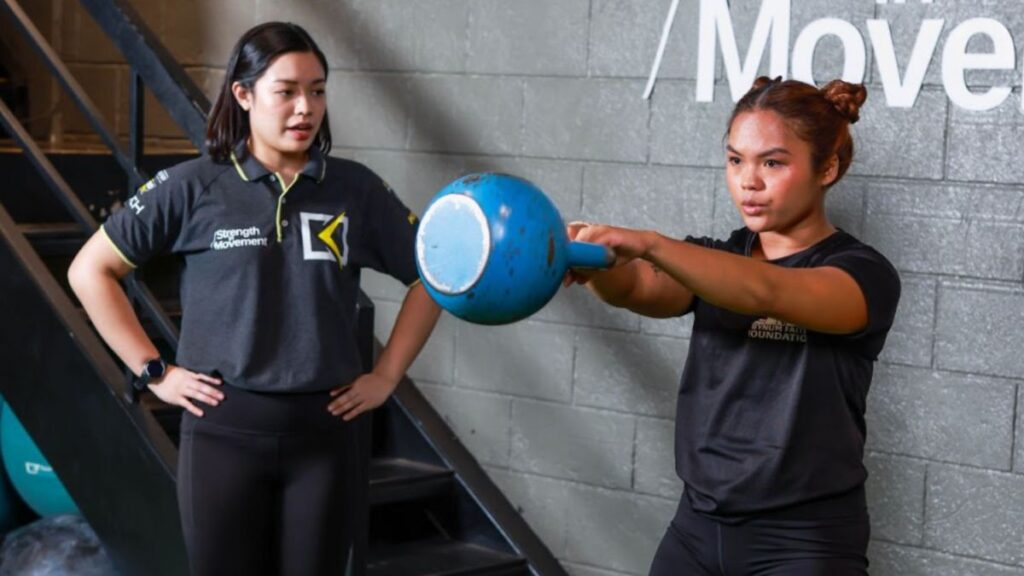Nowadays, everyone seems to be into running, sharing their workouts, posting Strava segments, and chasing PRs. But a new trend is taking over the fitness world: the rise of the hybrid athletes. These are individuals who combine endurance sports like long-distance running with serious strength training. It’s not just about being strong or fast, it’s about being both.

But can you have the best of both worlds? Can your body handle heavy deadlifts and half marathons? Is training for strength and endurance at the same time a recipe for peak performance, or burnout?

The short answer is: yes, you can do both and do them well. When done right, running and strength training can complement each other beautifully. But the key lies in smart programming, proper recovery, and a strong understanding of how these two disciplines interact.
How Running and Strength Training Help Each Other
Surprisingly to some, lifting weights can make you a better runner, and vice versa.
1. Strength training improves running performance:
Incorporating strength work into your training can enhance running economy, build muscular endurance, and reduce injury risk. Stronger glutes, hamstrings, and core muscles stabilize your body and improve stride efficiency, especially during long runs or races.

2. Running builds mental and aerobic endurance for strength athletes:
For lifters, adding some cardio (like running) can improve heart health, increase work capacity, and even accelerate recovery between sets. Not to mention, the mental toughness built through long-distance running can translate well to grinding through heavy sets under the bar.

Coaching for Strength Training: Why It Matters
One of the smartest decisions a hybrid athlete can make is to work with a coach, especially when it comes to strength training. Even if you’re a seasoned lifter or just starting out, having expert guidance can make a significant difference in your progress and long-term sustainability.
Here’s how strength coaching can help:
Customized programming: A good coach tailors your strength training plan around your running schedule and goals. No more cookie-cutter routines that ignore your specific needs.

Progressive overload with purpose: Rather than pushing weights aimlessly, a coach ensures you’re progressively challenging yourself in ways that align with your hybrid goals—building strength without compromising your run performance.

Injury prevention and technique: Coaches help you lift safely with proper form, which is crucial when you’re also dealing with the repetitive impact of running.

Accountability and consistency: Just like marathon training, lifting requires consistency. A coach keeps you on track and adjusts your plan when life or fatigue gets in the way.

Common Mistakes in Hybrid Training
Despite the benefits, hybrid training isn’t as simple as just throwing a run in after your squat session. Here are some of the most common pitfalls:
- Doing too much, too soon:
Trying to maintain a powerlifter’s squat volume and train for a marathon is a recipe for burnout or injury. You need to scale both disciplines intelligently based on your current fitness level and goals. - Poor scheduling and program design:
Doing heavy squats the day before a long run can leave your legs too fatigued to train effectively. Similarly, going for a hard run right before leg day can impact your lifting performance. Organize your training week so that the most demanding sessions are separated. - Ignoring recovery:
Hybrid training increases your overall training load significantly. If you’re not prioritizing sleep, mobility, and rest days, your body won’t keep up. Overtraining symptoms like chronic soreness, poor sleep, irritability, or stagnating performance are red flags.
Nutrition: Fueling for Two Sports
Nutrition becomes even more critical when training for both strength and endurance. You’re not just fueling for one sport, you’re supporting two different energy systems.
- Carbohydrates are crucial for fueling runs and supporting recovery. Low-carb diets can impair endurance and leave you under-recovered for strength sessions.
- Protein is essential for repairing and building muscle. Aim for 1.6–2.2g of protein per kilogram of bodyweight per day, especially if you’re lifting heavy regularly.
- Hydration and electrolytes matter too, especially for runners. Even mild dehydration can affect both strength output and running performance.
- Consider timing your meals strategically around workouts. A solid pre-run or pre-lift meal can improve performance, while post-workout nutrition speeds recovery and reduces muscle soreness.
Final Thoughts: Train Smart, Not Just Hard
Being a hybrid athlete is entirely possible, but it takes more planning than just randomly combining running and lifting. Periodization, recovery, and self-awareness are key. Understand that you might not always hit your max squat PR and your fastest 10K in the same training block, but over time, you’ll become stronger, fitter, and more well-rounded.
Train with Purpose at Kinetix Lab!
Kinetix Lab helps runners lift stronger and lifters run smarter. Whether you’re preparing for your next race, chasing a new PR in the gym, or just looking to become a more well-rounded athlete, they’ve got you covered.
Visit Kinetix Lab Today!
U.P Town Center, Level 2, Phase 1, Katipunan Ave, Quezon City
The Podium Mall, Level 4, Ortigas CBD
One Ayala Mall, Level 3, Ayala Avenue, Makati City
For Inquiries, Please Contact:
📱 09625104217 | (02) 7001-6607
🌐 www.kinetixlab.com.ph
Facebook: www.facebook.com/KinetixLabPH
Instagram: www.instagram.com/kinetixlab


